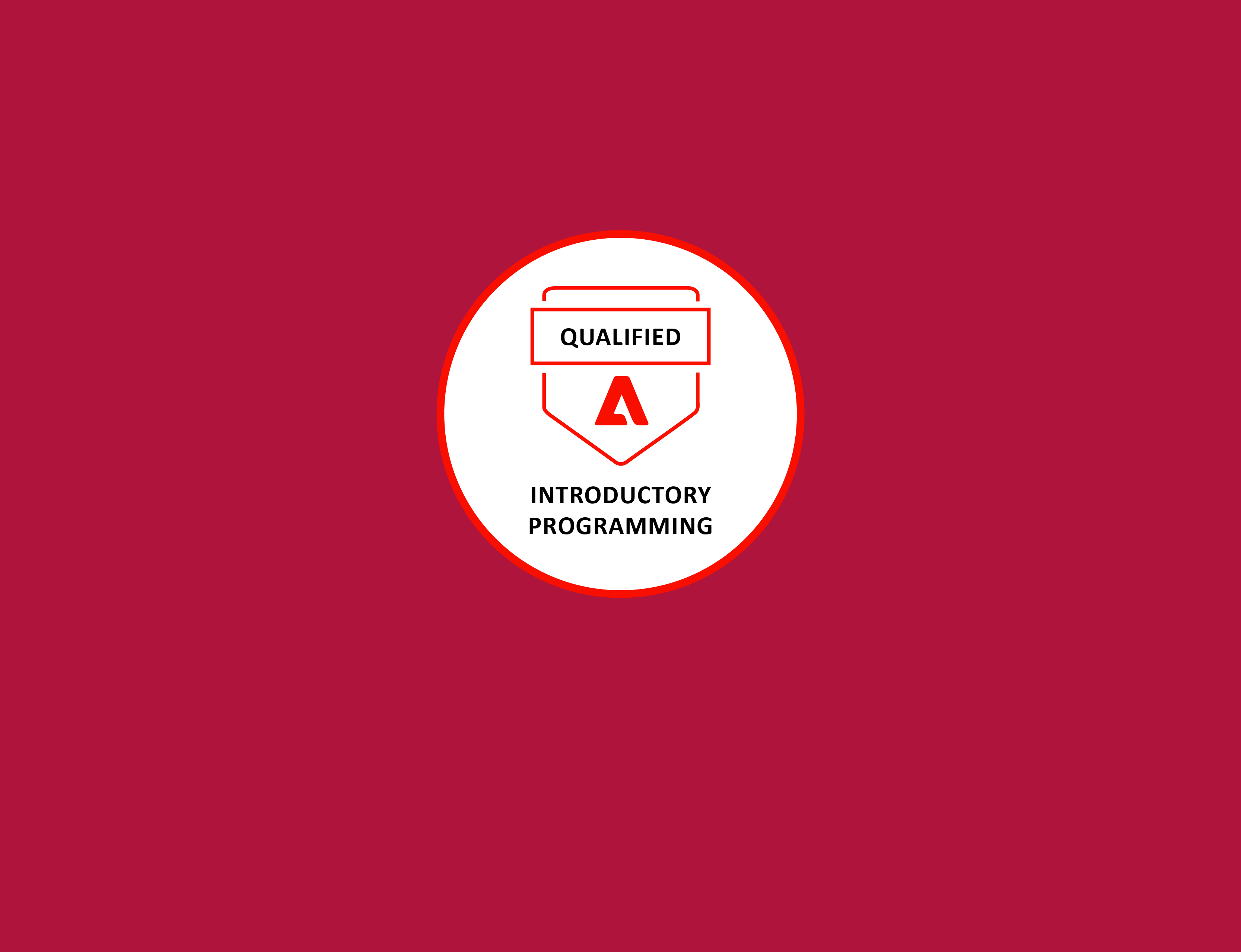Highlight your skills and become Adobe Qualified.
Prove your hands-on experience and gain a competitive edge in your industry by earning a credential through the Adobe Qualified Credential Program.

Prove your hands-on experience and gain a competitive edge in your industry by earning a credential through the Adobe Qualified Credential Program.
This foundational certification is perfect for learners beginning their journey into the exciting world of programming. It provides essential skills to build a strong foundation in coding concepts, logical thinking, and problem–solving techniques through engaging, hands–on learning.
Globally recognized, this qualification introduces key computational principles using tools like Scratch. With a focus on creativity, interactive project development, and structured problem–solving, it prepares learners for advanced programming and opens doors to a wide range of future opportunities in the field.
Level 1: Introductory Programming is designed for learners who are new to programming and want to build a strong foundation in coding. It is perfect for students, young learners, or anyone eager to explore the basics of programming and computational thinking.
This certification helps learners formalize their introductory programming skills, fostering creativity and problem–solving abilities. It also prepares them for more advanced learning opportunities, paving the way for future growth in the field of programming.
The Level 1: Introductory Programming is a flexible, modular certification program that allows learners to progress at their own pace. Each module is designed to cover essential programming concepts, with the option to complete them individually or in combination. This flexible structure enables learners to tailor their learning experience to fit their personal interests and future programming goals, providing a solid foundation in coding, problem–solving, and creative project development.
There are three modules:
Each module in the Level 1: Introductory Programming certification is assessed through hands–on projects and coding tasks, allowing learners to apply both theoretical knowledge and practical skills. This modular approach enables you to progress at your own pace, focusing on areas that are most relevant to your programming goals.
Upon completing all modules, you will receive the Adobe Qualified Programming Associate – Level 1 Certification.
There is no Pass or Fail. Results are reported in Bands 1–4, with Band 4 being the highest. Band 1 indicates limited understanding of the programming concepts; Band 2 reflects basic but systematic knowledge; Band 3 demonstrates a solid grasp of key concepts with practical application, and Band 4 shows a comprehensive mastery of the material.
Level 1: Introductory Programming is open to individuals from all backgrounds and experience levels.
It is suitable for learners who are: